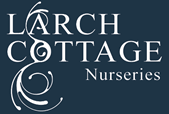Advice
Control slugs in the garden
Slugs in the garden and how to control them.
Recently we have had a lot of people asking how they can control the damage caused by slugs in the garden so we have put together a list of suggestions to help you put a stop to any slug-related trouble.
Slugs can cause a lot of damage in the garden, particularly to young seedlings and this is normally most severe during the warmer, humid months. While slugs are so common it is inevitable that some damage will be caused, measures can be taken to minimise this, both chemical and non-chemical.
Non-Chemical
Biological Slug Control – There are nematodes available which are specific to slugs and do not harm any other animals. These are watered into soil and infect the slugs with bacteria which kills them. These are most effective when applied to warm soil in the summer months.
Slug Traps – Homemade traps such as jars filled with beer of fruit prove popular. They should be placed near any vulnerable plants, the slugs will be attracted to them and once they have fallen into the jar they cannot escape. Traps should be checked and replaced regularly, every morning if possible.
Slug Barriers – Slug-gel, slug-tape or copper tape can be placed around any potted plants to create a barrier which either repels slugs or which they cannot pass through.
Encourage Predators – Predators such as birds and hedgehogs can be encouraged to live in your garden really easily by providing food and water all year round as well as making homes for them such as wood piles and bird tables. You could even create a small pond for frogs and newts who will make short work of the slugs.
Larch Cottage Tip to help control slugs: Plant Allium Bulbs underneath.
Here at Larch Cottage we have a large number of Hostas planted along the walkway through the perennial beds and down to the shade garden. The Hostas are planted at the base of Prunus Shogetsu Blushing Bride, whilst under-planted with Allium Purple Sensation. Although we do get some slugs in this planting we believe that the smell of the Allium bulbs themselves – which are part of the onion family – work in keeping the slugs at bay. So, as well as looking fantastic they do a great job for us!
Using Chemicals to control slugs
Slug pellets can also be used to combat a slug problem – they should always be used according to manufactures instructions and spread thinly around plants. It is important to use and store pellets correctly as they can be harmful to other wildlife and young children in large quantities.
There are also certain plants which slugs do not like (but may well eat if there is nothing else available). For example;
- Hardy Geraniums
- Aquilegias
- Fuchsia
- Alstromeria
- Euphorbia
- Hydrangea
- Lavender
- Roses
- Sedums
- Grasses & Ferns.

